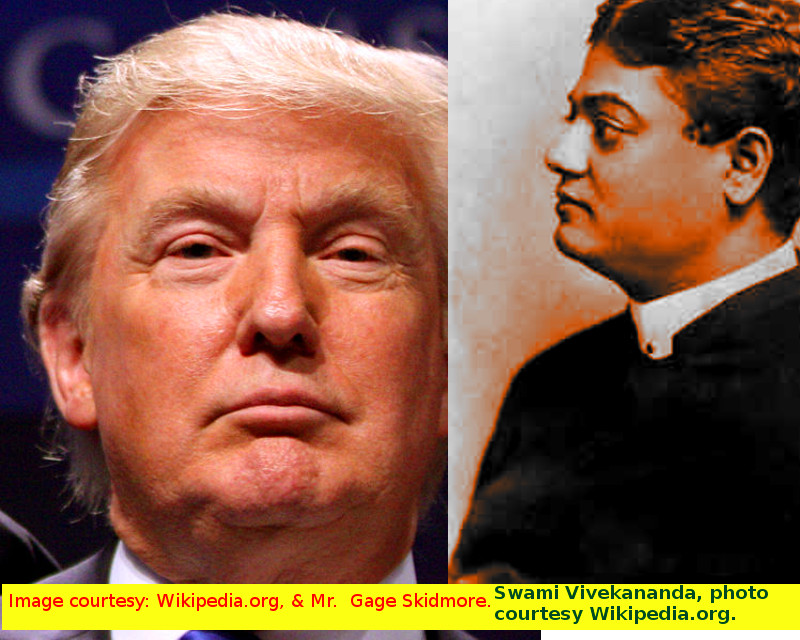#146 , HOW DOES AN ILLITERATE TEACHER KNOW THE SPIRIT OF THES SCRIPTURES WITHOUT READING THEM?
So the teacher must be able to know the spirit of the scriptures. The network of words is like a huge forest in which the human mind loses itself and finds no way out. The various methods of joining words, the various methods of speaking a beautiful language, the various methods of explaining the dicta of the scriptures, are only for the enjoyment of the learned. They do not attain perfection; they are simply desirous to show their learning, so that the world may praise them and see that they are learned men. You will find that no one of the great teachers of the world went into these various explanations of texts; on their part there is no attempt at "text-torturing", no saying, "This word means this, and this is the philological connection between this and that word." You study all the great teachers the world has produced, and you will see that no one of them goes that way. Yet they taught, while others, who have nothing to teach, will take up a word and write a three-volume book on its origin and use. As my Master used to say, what would you think of men who went into a mango orchard and busied themselves in counting the leaves and examining the colour of the leaves, the size of the twigs, the number of branches, and so forth, while only one of them had the sense to begin to eat the mangoes? So leave this counting of leaves and twigs and this note-taking to others. That work has its own value in its proper place, but not here in the spiritual realm. Men never become spiritual through such work; you have never once seen a strong spiritual man among these "leaf-counters". Religion is the highest aim of man, the highest glory, but it does not require "leaf-counting". If you want to be a Christian, it is not necessary to know whether Christ was born in Jerusalem or Bethlehem or just the exact date on which he pronounced the Sermon on the Mount; you only require to feel the Sermon on the Mount. It is not necessary to read two thousand words on when it was delivered. All that is for the enjoyment of the learned. Let them have it; say amen to that. Let us eat the mangoes.
BLOGGER'S VIEW
1. Learned men want to show their learning. Then what do the unlearned men want to show?
2. Shri Ramakrishna spent about ten days with his Guru Totapuri to take Sanyas (monkhood) and learn the monistic philosophy by listening to him. In his Gospel, there is only another instance of his meeting a scholar. On June 25, 1884, there was another instance of his meeting Shashadhara Pandita. There also he spoke as if he alone had the commandment to teach. Click to see #96. The quantity and quality of listening of scriptures which Ramakrishna had, nobody knows and there is indication in his Gospel or biography.
3. All his time was spent in falling down into trances and recovering from them.
4. Thus without reading or listening, how could Shri Ramakrishna know the spirit of scriptures?
5. The story of counting the leaves instead of eating the mangoes is also not much relevant. A person who is asked to eat the mango fruit FOR THE FIRST TIME in his lifetime, will enquire from the giver/teller how they taste etc.
A person who is alone in a forest or a garden, and who finds a mango for the first time in his life, will not eat it without trying the first bite hesitatingly. Gradually he will progress to become a full-scale mango eater.
An extremely hungry traveller in a forest will eat any fruit he comes across to save himself.
No person whether hungry or not, entering the forest for the first time or not, whether heshe had tasted the mango earlier or not, would not count leaves and trees. Whether a scholar or a lay man, heshe makes all necessary enquiries and avoid them wherever they are not needed.
SUMMARY
Gurus claim that they have seen God. A scholar does not claim. Gurus teachings can contain glaring errors. Scriptures can also contain glaring errors. When a scholar interprets scriptures, he has to read it, explain its meaning and import as per the contemporary semantics, and add his personal view expressing clearly that it is is his personal view point. Thereafter, the reader will take his own decision.
Even a Guru has a similar job. His communication, is often oral. When an unlearned Guru undergoes a particular experience, he may pass on to his disciples blindly. A learned Guru who deeply studied the scriptures can examine his experiences in the light of the preachings of the scriptures (oral or written), test them, evaluate them and then only narrate them to the disciples. Thus a learned Guru is likely to err less frequently unless he is inattentive or biased in his evaluation work. When the disciple receives Guru's communication, after decifering it, he will have to carry out the evaluation exercise in the same way, the Guru did before teaching.
The problem with both our Pandits and Gurus (scholars and teacher-cum-guides) is they go with everything in blind belief. They are afraid of questioning the contents of the scriptures or the truths of mystical experiences. Whether a Guru or disciple, whether a scholar or a student, they have a responsibility to question! Alas! they lack it.
EXAMPLE
When Ramakrishna says that according to scriptures, a goat should be sacrificed on the eighth lunar day (asht`ai), the disciples should have asked why the eighth day? Why not on the seventh day? Why should Goddess Kali like goats?
When Ramakrishna says that Divine Mother will be angry if he does not touch his finger into the meat offered to the Goddess, and lift it to his head, the disciples should question, "Why the Goddess should be angry with him?"
When Ramakrishna says that a person should not reason deeply and gives the example of hands getting dirty by putting hands deeply into a pond, the disciples should not accept such BAN ON REASONING.
RAKHAL (Brahmananda) and Vivekananda both seem to have accepted Guru's advice not to reason deeply.
The problem with this sort of blind acceptance is, the lingering doubts temporarily sent to sleep in the mind, will wake up and crop up at some other time later. A few years later, Brahmananda raised a doubt that Ramakrishna was a sham and Vivekananda had to declare "NO RETURN BACK". See this interesting post made by me earlier: Click to see: Was Ramakrishna a sham?



Comments